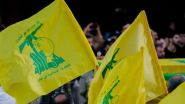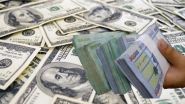
Donald Trump had promised that his visit to the Gulf would be historic — and he delivered. From the moment he stepped off the plane, a series of announcements followed swiftly.
Let’s start with the numbers — and they’re staggering: $300 billion in signed deals spanning industry, research, defense, space, and even civilian nuclear energy. “Another $700 billion is on the way,” noted Crown Prince Mohammed bin Salman. Similar deal-making took place in Qatar and the UAE. These are colossal sums — potentially exceeding $2 trillion — and almost surreal when compared to the scale of a country like Lebanon. This led the US president to declare that Riyadh would now rank among the world’s major business hubs.
The US president’s visit was also historic in political terms. Donald Trump is reshaping the region’s geopolitical landscape. He announced the lifting of sanctions on Syria and even met with Ahmad el-Chareh for about thirty minutes, urging him to consider establishing ties with Israel. Meanwhile, he displayed increasing impatience with Iran — a country with which he continues to negotiate, employing a carrot-and-stick diplomacy.
The US president seeks to fast-track history and strengthen the Gulf monarchies in their regional role. The US-Gulf monarchies summit held this Wednesday marks the culmination of this effort. The outcome: the strategic center of the Middle East is shifting toward the Gulf, which is now positioned to engage with all major powers and influence key issues, from Ukraine to Gaza — whose fate is being negotiated in Riyadh and Doha.
Close advisers to the US president have even suggested a significant semantic shift: renaming the “Persian Gulf” the “Arabian Gulf.” Such a symbolic move would affirm an identity, political stance, and civilizational narrative backed by the region’s leading Arab capitals, while also subtly challenging Iran’s mullahs.
Regarding Lebanon, Trump was clear: the country is "a victim of Hezbollah and Iran, but it has a unique opportunity to break free from their grip." He expressed his willingness to help Lebanon "build an era of prosperity and a future with its neighbors," though he did not specify who those neighbors were. However, in this case, it was clear to everyone.
Another key aspect of this tour is advancing the Abraham Accords. Trump is determined to fast-track normalization between Gulf countries — especially Saudi Arabia — and Israel. Currently, the kingdom links peace to the creation of a Palestinian state. For Trump, this obstacle seems manageable, especially when backed by America’s economic and diplomatic power.
Meanwhile, Lebanon is striving to avoid being relegated to the role of a powerless bystander. Under the leadership of President Joseph Aoun, the country has begun rebuilding ties with Arab capitals. During visits to several Gulf states, Aoun sought — and succeeded — in convincing investors to commit to Lebanon’s reconstruction, reaffirming his pledge to disarm all militias.
The task ahead is substantial, and the challenges persist, but Lebanon refuses to give up on the idea of becoming a gateway. It also clings to the notion that it still has a role to play in the region’s unfolding history. The real question is whether the world is still willing to listen. In many ways, we are witnessing a regional Yalta.
Henry Kissinger once said,
“Being a small country in a region undergoing reconfiguration means being at the mercy of an agreement to which one is never invited, yet suffers all its consequences.”
Hope, it seems, is what keeps us going!



Comments